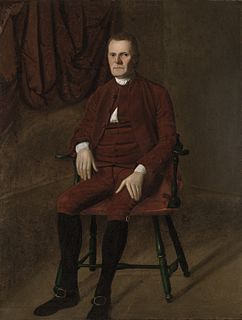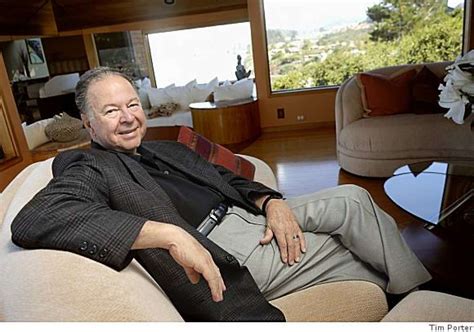A Quote by Ivan Illich
The myth of unending consumption has taken the place of the belief in life everlasting.
Quote Topics
Related Quotes
It is my belief that we need a new transnational sustaining 'myth' that can impart value and respect. It is my further belief that we are coming to see our universe and life as creative, without a directing agency. Meaning emerges with life. If this view becomes widespread, it has the promise to become the sustaining myth we need to sustain in turn an emerging global civilization.
I was raised in a strict fundamentalist household, and I always say that gives you a muscle of belief. I want to believe in something, but I don't believe in what my parents believed in. Poetry has taken the place, or I think the arts have taken the place, of religion in my life. I wanted to see how that was working out through the poems.
I believe that the souls of believers are at their death made perfectly holy, and immediately taken to glory: that at the end of this world there will be a resurrection of the dead, and a final judgement of all mankind, when the righteous shall be publicly acquitted by Christ the Judge and admitted to everlasting life and glory, and the wicked be sentenced to everlasting punishment.
Here is a myth for you if myths are your pleasure: "There is no more opportunity in this world." Most people held this false belief fifty years ago, the majority agreed with it five years ago, and practically everyone clings to it today. Clearly, this myth will also be the screaming rage in the future. Hang on to this myth, and you are destined to miss great opportunities for the rest of your life.
The effect of the post-Enlightenment project for human society is that all human activity is absorbed into labor. It becomes an unending cycle of production for the sake of consumption. The modern concept of "built-in obsolescence" makes this clear. The cycle of production and consumption has to be kept going, and the work of the artist or craftsman who aims to create something enduring becomes marginal to the economic order.
One of the oddest features of western Christianized culture is its ready acceptance of the myth of the stable family and the happy marriage. We have been taught to accept the myth not as an heroic ideal, something good, brave, and nearly impossible to fulfil, but as the very fiber of normal life. Given most families and most marriages, the belief seems admirable but foolhardily.
Maybe this is all a bit of a myth, a willful desire to give each place its own unique aura. But doesn't any collective belief eventually become a kind of truth? If enough people act as if something is true, isn't it indeed "true," not objectively, but in the sense that it will determine how they will behave? The myth of unique urban character and unique sensibilities in different cities exists because we want it to exist.
I always have difficulty with the Greek tragic plays. I think the difficulty one has - which is a serious problem - is the question of belief. Do you believe in the myth that the play expresses? Do you believe in it as myth or as reality? With any play, you have to believe in it as reality. You can't act a myth.
Developed and benefited from the unsustainable patterns of production and consumption which have produced our present dilemma. It is clear that current lifestyles and consumption patterns of the affluent middle class-involving high meat intake, consumption of large amounts of frozen and convenience foods, use of fossil fuels, appliances, home and work-place air-conditioning, and suburban housing-are not sustainable. A shift is necessary toward lifestyles less geared to environmentally damaging consumption patterns.






































